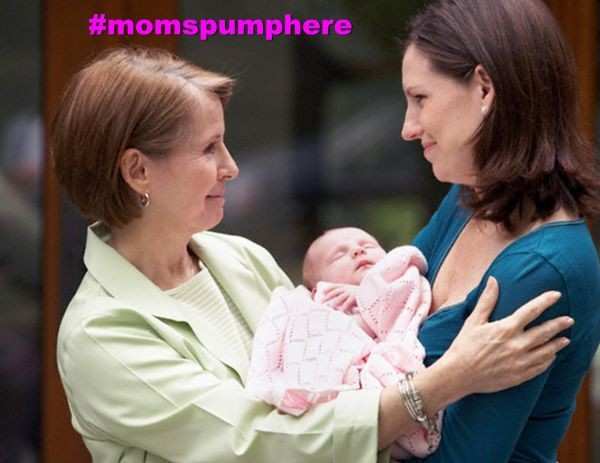We’ve written about Ms. Courtney Jung’s ideas on breastfeeding before (see www.momspumphere.com/blog/entry/fired) but this week we are reacting to her new book “Lactivism: How Feminists and Fundamentalists, Hippies and Yuppies, and Physicians and Politicians Made Breastfeeding Big Business and Bad Policy” (Basic, 258 pages, $26.99) – and we haven’t yet read it entirely.
The modern term of lactivism combines lactation with activism, but the connotation is different depending on whom you’re speaking with. Many breastfeeding advocates (Priya and myself included) consider themselves to lactivists and we see it as a positive term, but Jung’s book is showing there may be a negative side to being a lactivist.
Calling women who encourage breastfeeding “elites” with “moral pieties around both eating and parenting” is offensive. Jung defines lactivism as “compulsory breastfeeding, breastfeeding as a moral crusade, and breastfeeding as a means of distinguishing good from bad parents.”
We at Moms Pump Here promote breastfeeding and pumping to every mom we meet. We don’t judge moms who choose not to breastfeed and we honor a woman’s choice to feed her baby how she wishes.
However, we also try to educate some moms who say they won’t even begin to breastfeed because they feel they don’t have the support needed for the long-term commitment to nursing after their maternity leave ends. We frequently hear from expectant moms who say, “My boss won’t support it”, or their offices are shared and they’re not sure they’ll have privacy when they return to work – so why begin to breastfeed if eventually the baby will receive formula when the mom returns to work? We don’t want moms to lose the ability to make such important decisions for their babies – because of their boss’s opinion or a lack of suitable space for pumping. If this makes us lactivists, then we are happy to take that label if it means we can help other moms.
Jung’s text also showcases the difference between breastfeeding/nursing versus using a pump to provide the baby with breastmilk. She highlights that perhaps the pump is not so great for us working moms because we are then tied to a machine and we can then be at the mercy of our employers instead of being there to directly feed our babies. We would like to think that for a mom who has the choice between providing formula or using a pump to provide her own breastmilk for her baby, at least she has a choice and if the baby receives breastmilk, then both mom and baby can take advantage of the mutual benefits of her pumping.
Some of Jung’s book is offensive, hinting that lactivists are taking advantage of vulnerable new moms or pressuring them to take a path that may not be meant for them. Still, she is furthering the conversation about breastfeeding and the modern mother. We are happy to continue this conversation and we will loudly cheer from the lactivist side.
Stay tuned for further updates as we make our way through her book (if we decide to continue reading it).


